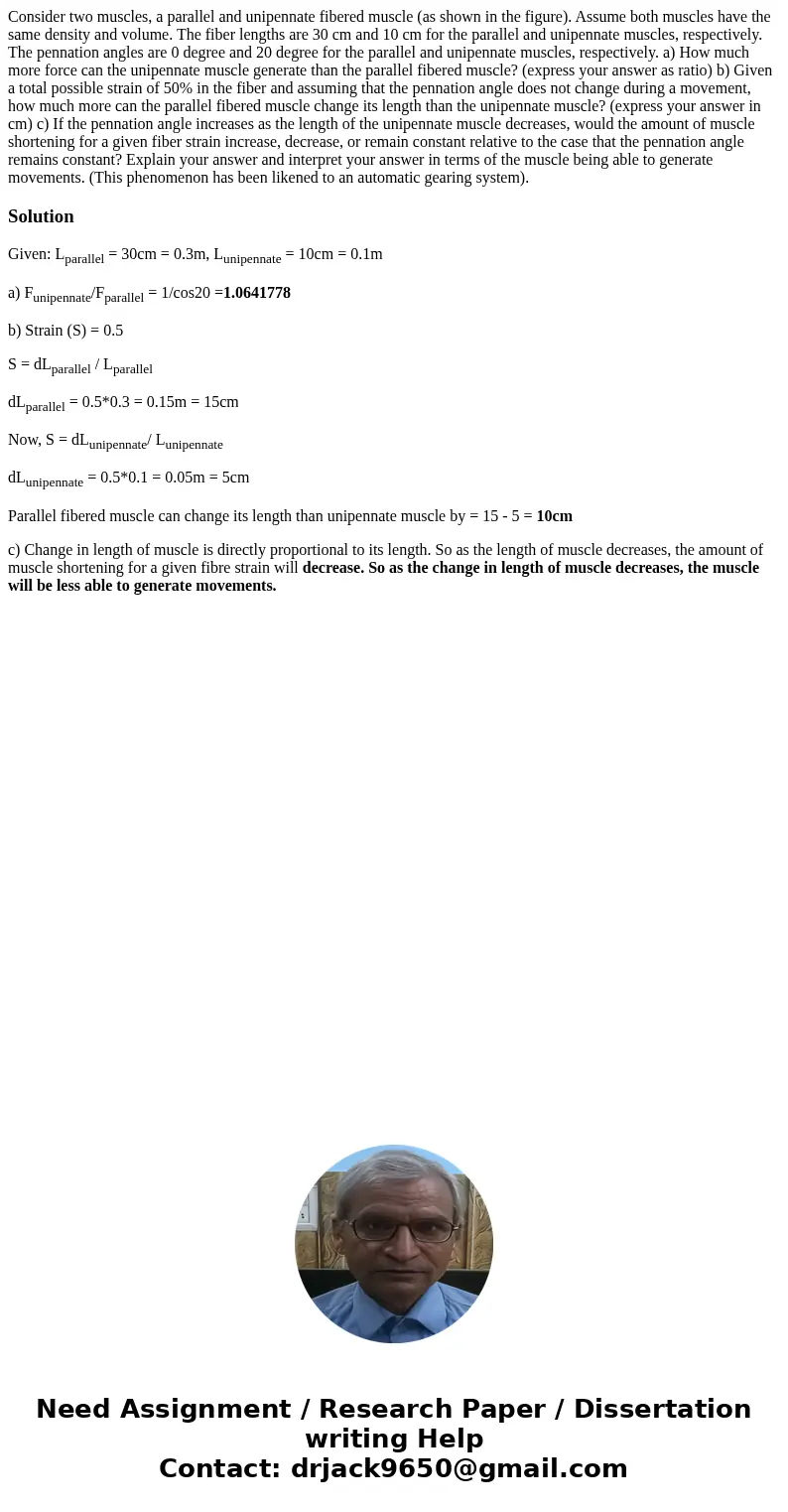Consider two muscles a parallel and unipennate fibered muscl
Consider two muscles, a parallel and unipennate fibered muscle (as shown in the figure). Assume both muscles have the same density and volume. The fiber lengths are 30 cm and 10 cm for the parallel and unipennate muscles, respectively. The pennation angles are 0 degree and 20 degree for the parallel and unipennate muscles, respectively. a) How much more force can the unipennate muscle generate than the parallel fibered muscle? (express your answer as ratio) b) Given a total possible strain of 50% in the fiber and assuming that the pennation angle does not change during a movement, how much more can the parallel fibered muscle change its length than the unipennate muscle? (express your answer in cm) c) If the pennation angle increases as the length of the unipennate muscle decreases, would the amount of muscle shortening for a given fiber strain increase, decrease, or remain constant relative to the case that the pennation angle remains constant? Explain your answer and interpret your answer in terms of the muscle being able to generate movements. (This phenomenon has been likened to an automatic gearing system).
Solution
Given: Lparallel = 30cm = 0.3m, Lunipennate = 10cm = 0.1m
a) Funipennate/Fparallel = 1/cos20 =1.0641778
b) Strain (S) = 0.5
S = dLparallel / Lparallel
dLparallel = 0.5*0.3 = 0.15m = 15cm
Now, S = dLunipennate/ Lunipennate
dLunipennate = 0.5*0.1 = 0.05m = 5cm
Parallel fibered muscle can change its length than unipennate muscle by = 15 - 5 = 10cm
c) Change in length of muscle is directly proportional to its length. So as the length of muscle decreases, the amount of muscle shortening for a given fibre strain will decrease. So as the change in length of muscle decreases, the muscle will be less able to generate movements.

 Homework Sourse
Homework Sourse